Boeing
Latest

Boeing reportedly left engineers, officials unaware of 737 Max changes
Boeing's overestimation of the 737 Max's safety may have been prompted in part by a simple but dangerous problem: many of the people involved weren't aware of the changes. The New York Times has claimed that some engineers, testers and regulators were unaware Boeing had made the jet's MCAS anti-stall system far more aggressive. They operated on the assumption the technology relied on two sensors when it was using just one, and a "compartmentalized approach" to development left key engineers without a full understanding of how the system worked.

Bird strike may have triggered software issue in second 737 Max crash
Investigators might know what triggered the software panic aboard an Ethiopian Airlines 737 Max before its fatal crash, and it could be something Boeing considered months earlier. Unnamed officials talking to the Wall Street Journal claim that US aviation overseers "increasingly believe" that a bird collision may have sent flawed sensor data, leading to the jet's anti-stall code automatically pushing the nose down. Black box recordings show that a sensor was "sheared off" or otherwise broken soon after takeoff, experts said.

Boeing says its 737 Max software update is complete
Today, Boeing announced that it has completed the software update to its 737 Max planes. The update is meant to correct the software flaws that contributed to the Lion Air and Air Ethiopia crashes that killed 346 people in total. The update was expected in April, but Boeing needed extra time to guarantee that it had "identified and appropriately addressed" the problems that led to those crashes.
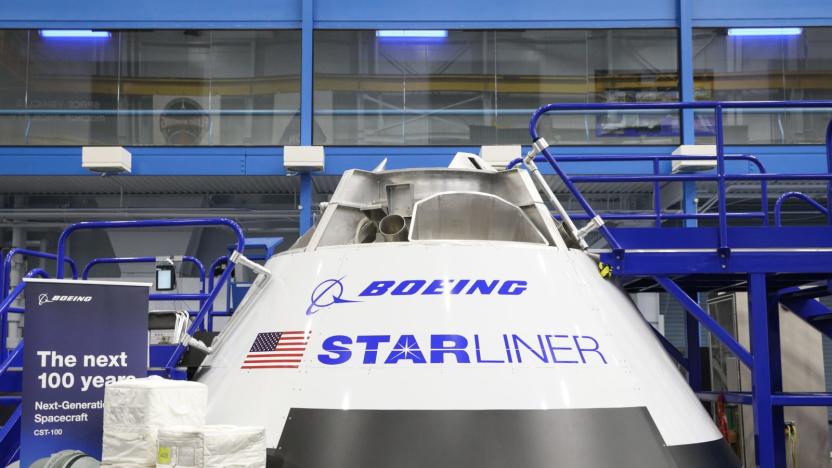
Boeing shows off its Starliner's latest parachute test
As SpaceX and Boeing continue with their commercial crew space race, Boeing posted this video showing a test of the parachutes on its Starliner vehicle. The plan is for the crew to parachute down in the American southwest after departing the ISS aboard Boeing's spacecraft, and keep it in good enough shape to be reused up to ten times. We've seen video of similar tests for the SpaceX Dragon capsule, and even close-up images of the Starliner crashing down on its airbags. The spacecraft's first uncrewed flight test has been pushed back repeatedly and is now on the schedule for August -- while we hope we never see these features deployed, they're important to test before anyone actually takes a ride in the thing.
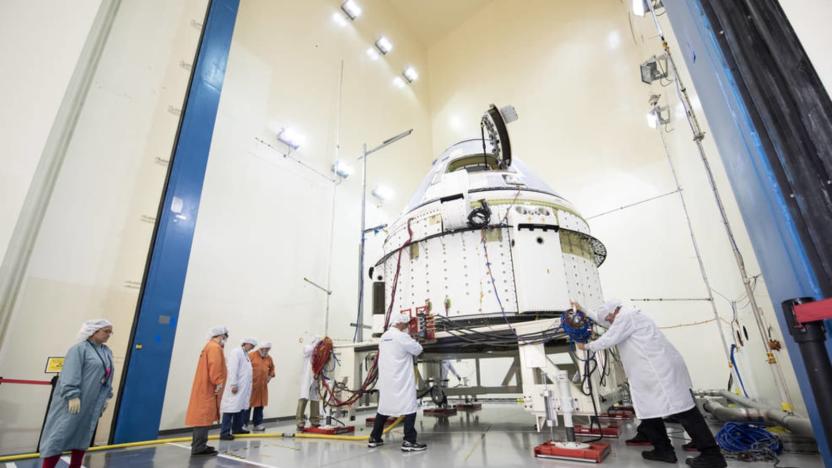
Boeing delays its first Starliner test flight until August
For a while, Boeing and SpaceX have been neck-and-neck in their race to provide the first commercial space travel. That might be changing, as NASA and Boeing announced they'll delay the first uncrewed flight test of Boeing's Starliner. The spacecraft will now launch in August -- a full year after it was first scheduled to takeoff.
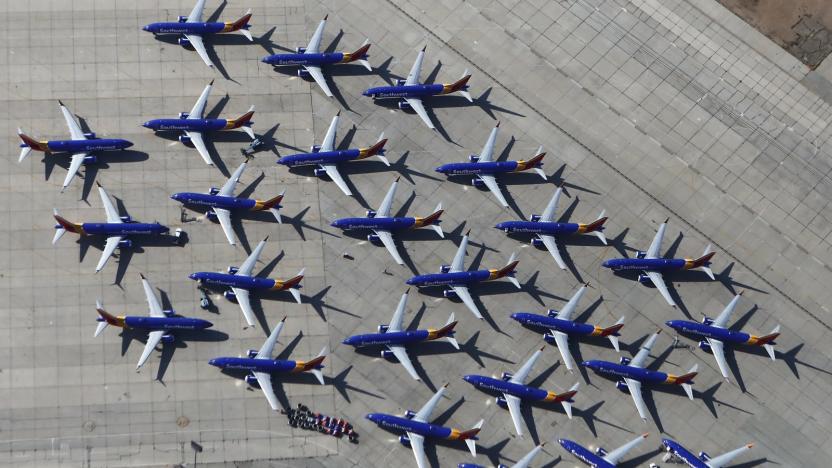
Boeing's 737 Max update is still 'weeks' away from FAA approval
It's going to be a long while before the FAA officially approves Boeing's 737 Max software update. The regulator said it expected the update to arrive in the "coming weeks," as Boeing needed extra time to guarantee that it had "identified and appropriately addressed" the problems that may have led to crashes in Ethiopia and Indonesia. After that, the FAA still intends to conduct a "rigorous safety review."

Boeing explains its 737 Max software update
Boeing has detailed its promised software update for 737 Max jets, and it largely matches up with the rumored safety improvements that could reduce the likelihood of a crash. The anti-stall Maneuvering Characteristics Augmentation System (MCAS) will now compare the data from both of the 737's angle-of-attack sensors, rather than relying on one. If there's a disagreement of 5.5 degrees or more, MCAS won't kick in. The software will also reduce its input during an incident, and won't apply so much input to the stabilizers that the crew can't counteract it.

FAA 'tentatively' approves software fix for 737 Max jets
Boeing may be close to delivering its fix for the 737 Max's anti-stall system and preventing future tragedies. The Wall Street Journal has learned through documents and sources that the FAA has "tentatively" greenlit software and training updates pending some final simulation and real-world flight tests. They could make their way to airlines within a few weeks, according to the insiders, although there's still the possibility of last-minute revisions and changes to the timeline.

Boeing sold essential safety features as extras on 737 Max
Boeing charged airlines extra for two safety features that may have been able to detect in advance issues with the 737 Max planes involved in fatal crashes, according to the New York Times. The additional sensors provided checks on data collected by sensors on the planes and could have alerted pilots to potential issues. Boeing will now make one of those safety add-ons standard issue on the 737 Max.

Report: Boeing's crucial 737 Max safety analysis was flawed
Boeing's original 737 Max safety analysis, used by the FAA to certify the aircraft, may have had several serious flaws, according to a report from the Seattle Times. The problems revolved around a software system called MCAS, suspected to have contributed to the Lion Air and Air Ethiopia crashes that killed 346 people in total. Investigators are also looking at possible maintenance lapses and potential pilot error. The situation may have been compounded by FAA rules that allow aircraft manufacturers to do some of the certification themselves.

US grounds all Boeing 737 Max planes
Less than one day after expressing confidence in Boeing's 737 Max fleet, the US government has decided to ground the plane involved in two recent crashes. According to CNBC, President Trump told reporters that the US was issuing an emergency order to ground both Boeing's 737 Max 8 and 737 Max 9 aircraft, following similar prohibitions in the UK, France, Germany, Australia, Indonesia, China and elsewhere. Trump made the decision in concert with FAA acting director Daniel Elwell and US transportation secretary Elaine Chao and had spoke with Boeing CEO about the move as well. "They are all in agreement with the action," he said. "Any plane currently in the air will go to its destination and thereafter be grounded until further notice."
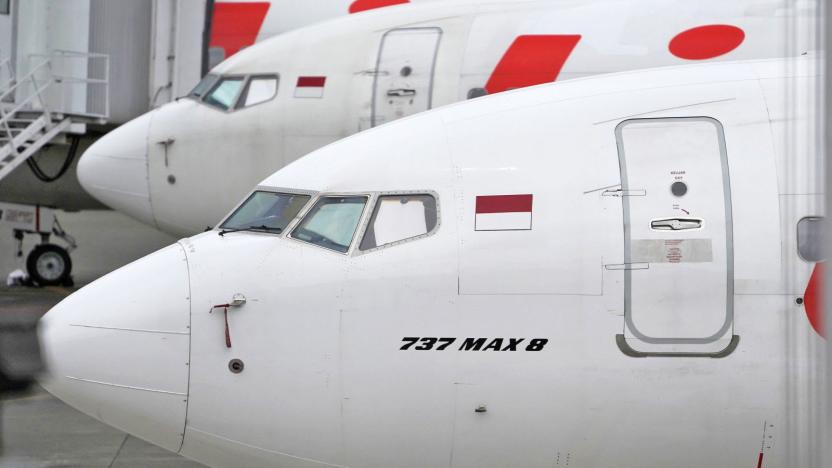
Boeing will release software updates for 737 Max jets by April
Following two air disasters months apart, Boeing has promised to release software updates for all of its Boeing 737 Max aircraft by next month at the latest. The updates were developed in the aftermath of the Lion Air Flight 610 disaster that killed 189 people, the company said, and include changes to flight control systems, pilot displays, operation manuals and crew training.

Boeing’s autonomous fighter jet could arrive next year
Boeing has unveiled an autonomous fighter jet which is expected to take to the skies in 2020. The aircraft is designed to fly alongside crewed jets during combat, performing early warning tests, intelligence gathering, surveillance and reconnaissance.

Boeing's self-flying taxi completes its first flight
Multiple companies have outlined plans for flying taxis, but Boeing just took an important step toward making them a practical reality. The aircraft maker has completed the first test flight of its autonomous electric VTOL aircraft, verifying that the machine can take off, hover and land. It's a modest start, to put it mildly -- the taxi has yet to fly forward, let alone transition from vertical to forward flight modes. That still puts it ahead of competitors, though, and it's no mean feat when the aircraft existed as little more than a concept roughly one year ago.

NASA launching safety review of SpaceX because Elon Musk smoked pot
When NASA tapped SpaceX and Boeing to fly astronauts to the International Space Station, the companies likely expected the government agency would keep a close eye on things. But they probably didn't expect a probe prompted by a podcast. According to the Washington Post, NASA is conducting a safety review of both companies because some officials were annoyed when they found out SpaceX CEO Elon Musk smoked weed with Joe Rogan.
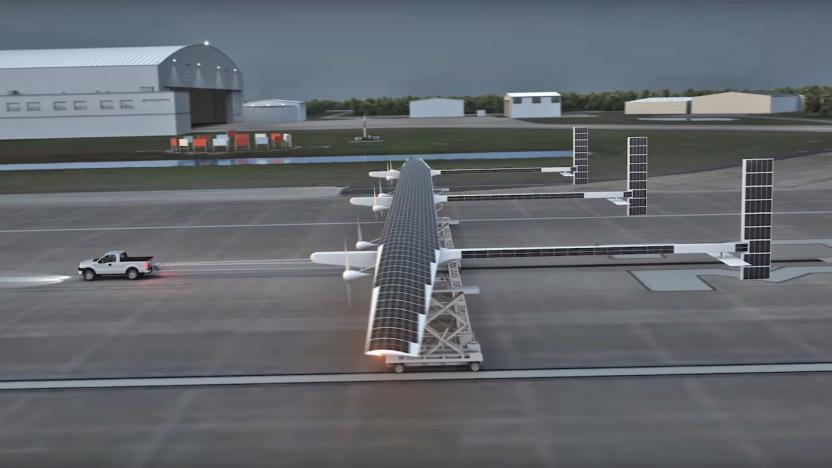
Boeing's solar-powered climate research drone takes flight in 2019
Aurora Flight Sciences, a subsidiary of Boeing that specializes in unmanned aerial vehicles, is gearing up to launch a solar-powered autonomous aircraft. The vehicle, called Odysseus, is designed for persistent flight at high-altitudes and will be used to perform climate and atmospheric research. Its first voyage is scheduled for the spring of 2019.
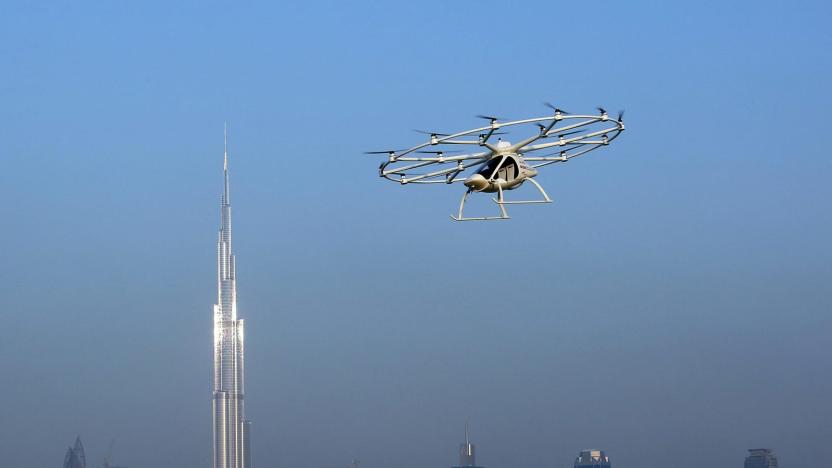
Japan teams up with Uber, Airbus and 19 others on flying taxi plan
Japan wants to bring flying taxis into the mainstream over the next decade and it's putting together a government-led group in order to do so, Bloomberg reports. The country's trade ministry said to today that the group will bring together at least 21 businesses including Uber, Boeing, Airbus, Japan Airlines and Toyota-backed Cartivator, which will meet next week to discuss plans going forward. For its part, the government will work on ways to regulate these sorts of vehicles. "The Japanese government will provide appropriate support to help realize the concept of flying cars, such as creation of acceptable rules," the ministry said.

NASA announces astronauts for first Commercial Crew missions
Today, NASA announced the astronaut selection for the first Commercial Crew flights, which will finally restore the ability to launch astronauts from American soil. Boeing's first test flight, which is scheduled for mid-2019, will have Eric Boe, social media-savvy astronaut Chris Ferguson and rookie Nicole Aunapu Mann on board. SpaceX's inaugural Crew Dragon voyage, called Demo-2 and targeting April 2019, will have Bob Behnken and Doug Hurley on board.

Boeing delays first crewed spacecraft test to mid-2019
On a media phone call this week, John Mulholland, who oversees NASA's commercial crew program at Boeing, revised the dates for the first uncrewed and crewed tests of the Starliner capsule, according to Ars Technica. The uncrewed test will be sometime in late 2018. The crewed test won't take place until mid-2019. It was previously scheduled for the end of this year.
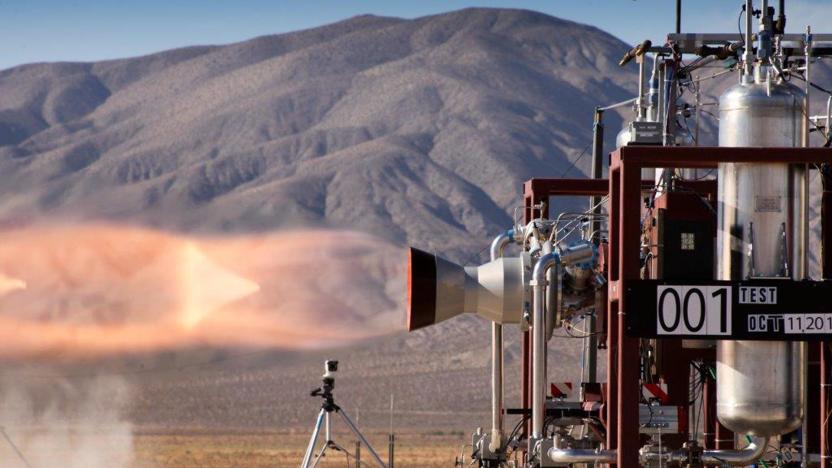
Boeing’s spacecraft faces even longer delays after propellant leak
The road to NASA's Commercial Crew -- restoring human spaceflight capabilities to the US -- has been bumpy, to say the least. And now, it appears that there has been another setback. Ars Technica uncovered a previously undisclosed issue that Boeing's spacecraft, the Starliner, suffered during a test of its launch abort engines.








